BASE Editor
Future-Proof Bathymetric Data Management
Access the latest tools for working with bathymetric data. Use BASE Editor™ to validate, analyze, and compile datasets in a variety of formats and from multiple sources. Integrate the latest high resolution bathymetry and topography with historical data in a user friendly environment. Visualize data with raster images and vector features in the 3D viewer.
Once the data is prepared, generate products like smoothed contours, depth areas, and selected soundings for use in chart production.
Part of the Ping-to-Chart solution
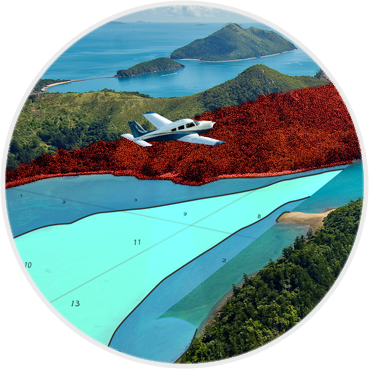
Core Features
Data Analysis
Visualize data in 2D and 3D. Display data over OGC services. Use different tools tools to compare your data.
Merge different data sources
Through the combine process, combine data from historical field sheets to the latest high density multibeam surveys in a single space.
Vector bathymetric product creation
Through our trusted tools, create contours, soundings and meta object for cartographic purpose in S-57 and S-100 format.
LAS Lidar support
Clean and classify lidar points in Subset Editor, S-57 and S-100 vector objects creation directly from the point cloud in Subset Editor or the 3D Viewer.
Video recording
Create a fly-through video using our 3D view for any type of bathymetric data.
Automation
Process model and python automate empowers any workflow to be fully automated and launched in one click from BASE Editor.
Feature Highlights in version 6
Teledyne Geospatial is pleased to announce the release of CARIS BASE Editor 6.1 now including enhanced automation through integrated python support to CARIS process models. Additionally, BASE Editor 6.1 adds "on-the-fly" vertical transformation providing a user-friendly way to display data in a different vertical datum.
CARIS BASE Editor 6.1.20 also supports the initial operational edition (3.0.0) of the IHO S-102 product specification.
* Note - An updated license file will be required to use BASE Editor 6.1.
FEB 19, 2025
Support for S-102 Edition 3.0.0
As one of the first in the market, CARIS BASE Editor 6.1.20 now supports the initial operational edition (3.0.0) of the IHO S-102 product specification. With the newly added process, users can export gridded data into an S-102 Exchange Set with true S-100 compliant folder structure, dataset file naming, and exchange metadata.
During export, a CATALOG.XML file will be created to record S100_ExchangeCatalogue metadata. These metadata entries will be automatically populated from a default template (an example is provided in the installation folder) as well as some user options. Efforts have been made to require only dataset-specific metadata to be specified through user options, minimizing manual work.
An additional S-100 license is required to use this new function. CARIS Easy View 6.1.20 was released to support the display of the new S-102 Edition 3 dataset.
SEP 25, 2023
Automation
To integrate with third-party solutions or to include with individual business logic, BASE Editor can now use custom processes written in python scripts and use CARIS Process Designer to add them inside a process model. Additionally, CARIS Batch can now be used to launch process models. The combination of these functionalities enhance CARIS automation tools making it possible to execute automated workflow across CARIS applications.
These different tools provide the ability to use a single application as a hub to launch automated workflows.
Python Support
Python scripting is the most flexible way to use CARIS Bathy DataBASE for automating workflows and support is now available for version 3.9, 3.10 and 3.11. Updating to new versions of Python helps safeguard IT infrastructure so join CARIS in upgrading today. Based on in-house testing, upgrading from Python 3.5 or 3.7 to 3.9, 3.10 or 3.11 should have minimal impact on user scripts.
On-the fly transformation
With the release of CARIS BASE Editor 6.1, new tools are available to apply vertical transformations using EPSG registered vertical datums. To provide more flexibility for customers, BASE Editor 6.1 provides the ability to create your own vertical datum using customers' own transformation models.
In addition, a new "on-the-fly" feature delivers vertical transformation to visualize data using a 3D coordinate reference system.
Connect to CARIS Cloud
CARIS BASE Editor now provides the ability to configure a connection to a CARIS cloud tenant. CARIS BASE Editor users can visualize the portfolio of data and products distributed through CARIS Cloud tenants.
A full list of enhancements is available to subscription members on the CARIS Customer Support site.
To view a list of features visit the Bathy DataBASE What's New page.
Complementary Products
HIPS and SIPS
Hydrographic processing solution that powers quality results and efficiency for single operators and the world's largest enterprises.
Learn moreEngineering Analysis Module
Effectively manage navigation channels, waterways, and ports, including vertical walls, comparing to models and performing analysis. Compute volume analysis.
Learn moreLOTS Limits and Boundaries Module
Maintain territorial sea baseline models and calculate Maritime Limits and Boundaries within a desktop environment.
Learn moreTechnical Specifications
| BASE Editor | |
|---|---|
| Component | Recommended |
| Processor | Recent generation multi-core CPU |
| Memory | 16 GB of RAM |
| Storage | 7200 RPM disk drive or solid-state drive for data storage and processing, minimum 1 GB available for installation |
| Display | NVidia or AMD display adapter, with an OpenGL 3.3 compatible GPU, with 2GB of memory or greater |
| Operating System | Windows 10 Professional 64-bit, or Windows 11 Professional 64-bit
|
Videos
Downloads
Suggested Reading
| Document | Type |
|---|---|
| Centralised Data for Hamburg Port Authority | |
| Charting for the 21st Century | |
| Survey Data Management Critical to Port of Melbourne’s Operations |
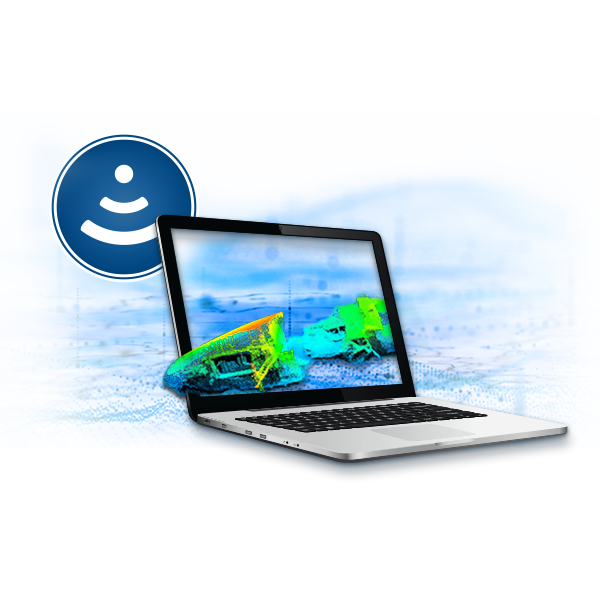

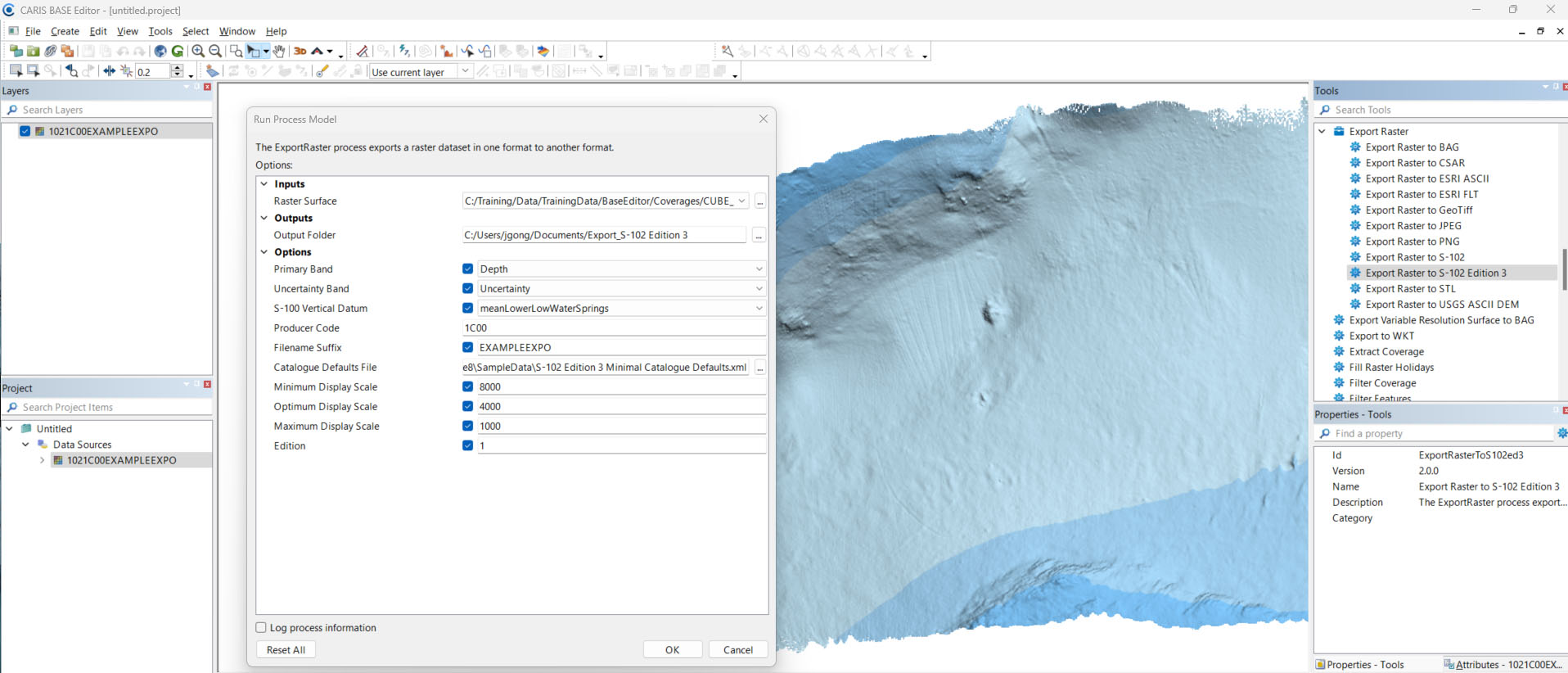
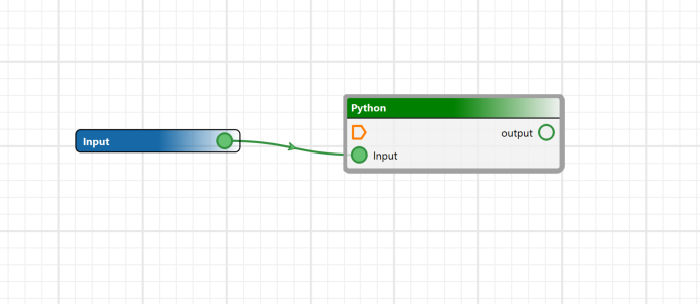
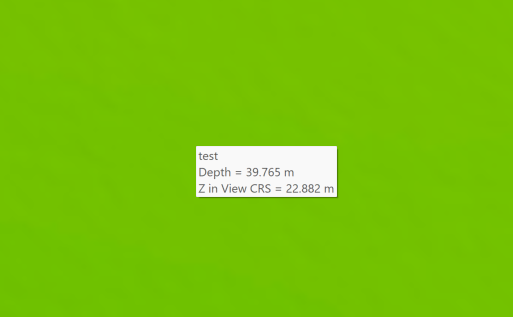

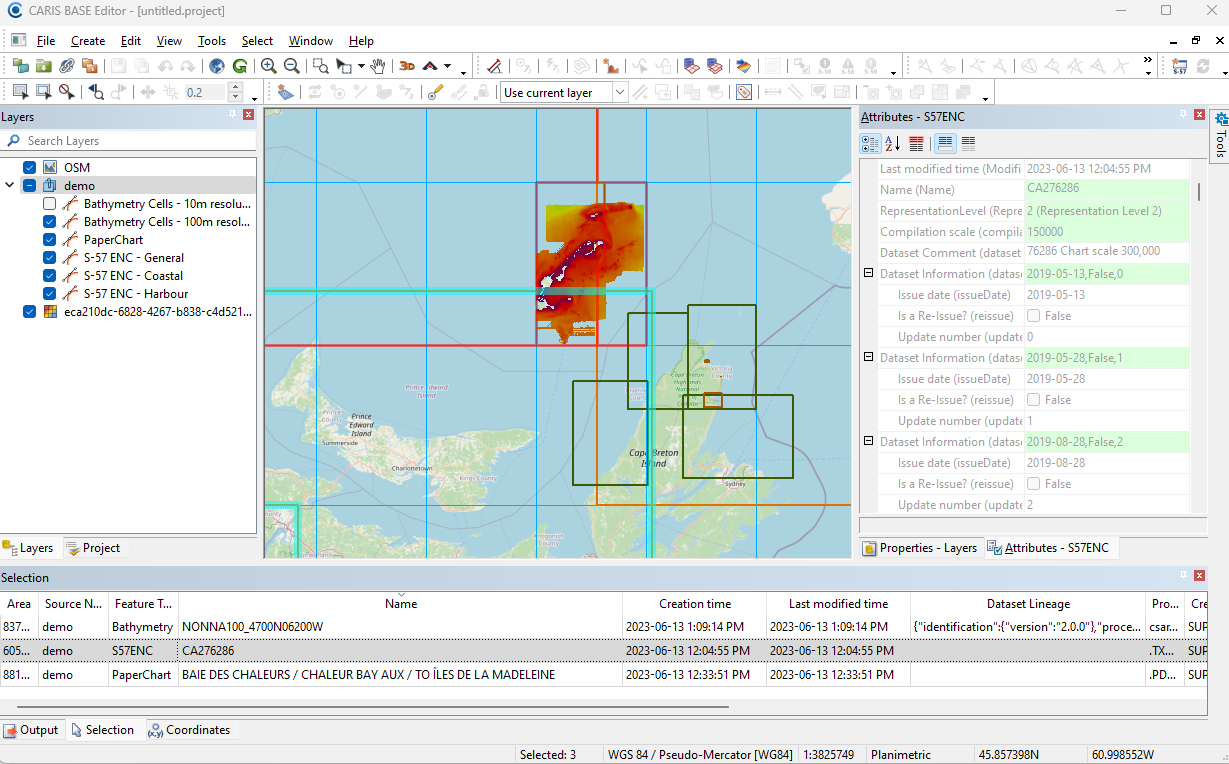 Screen capture provided courtesy of the Canadian Hydrographic Service
Screen capture provided courtesy of the Canadian Hydrographic Service